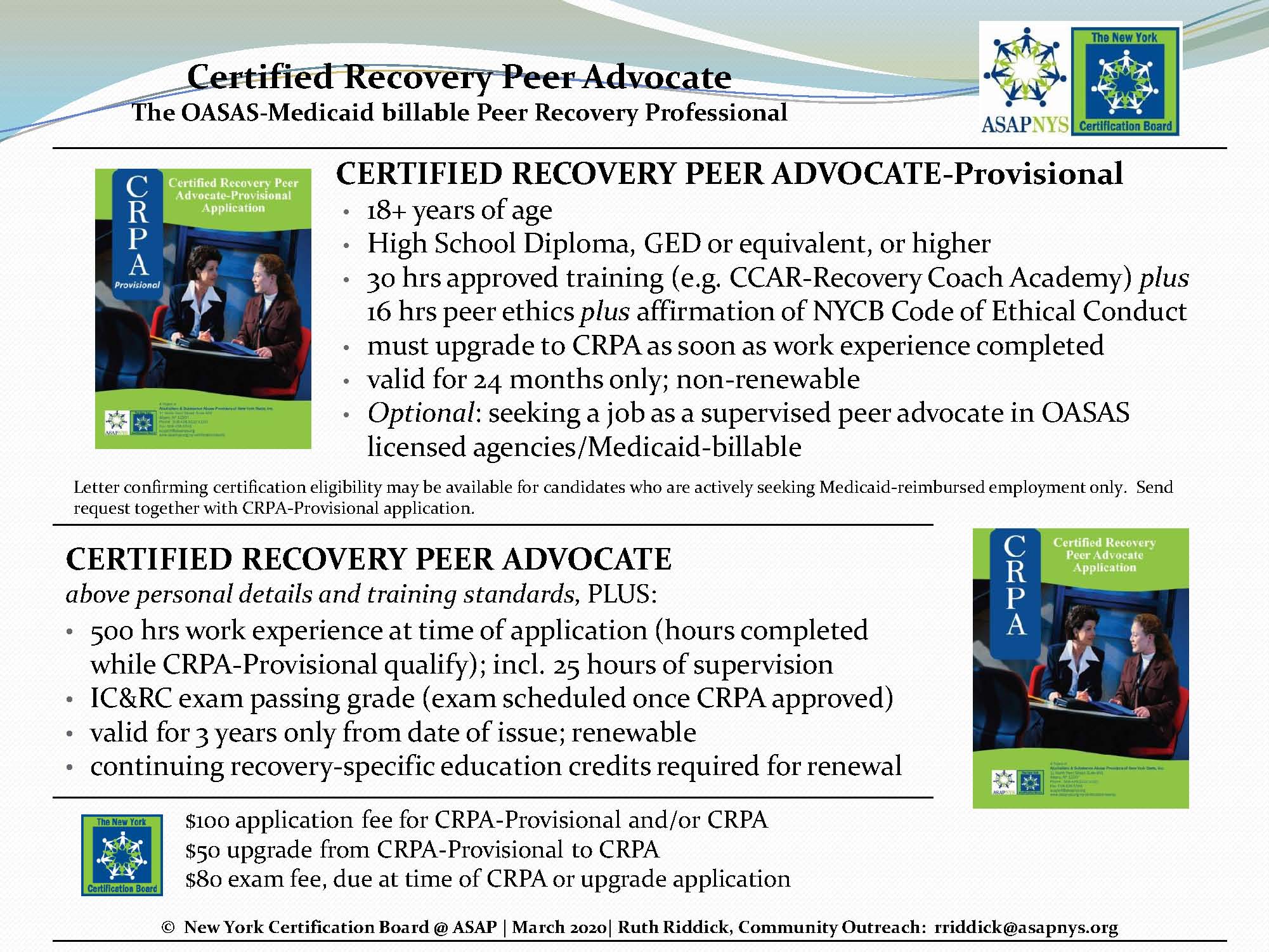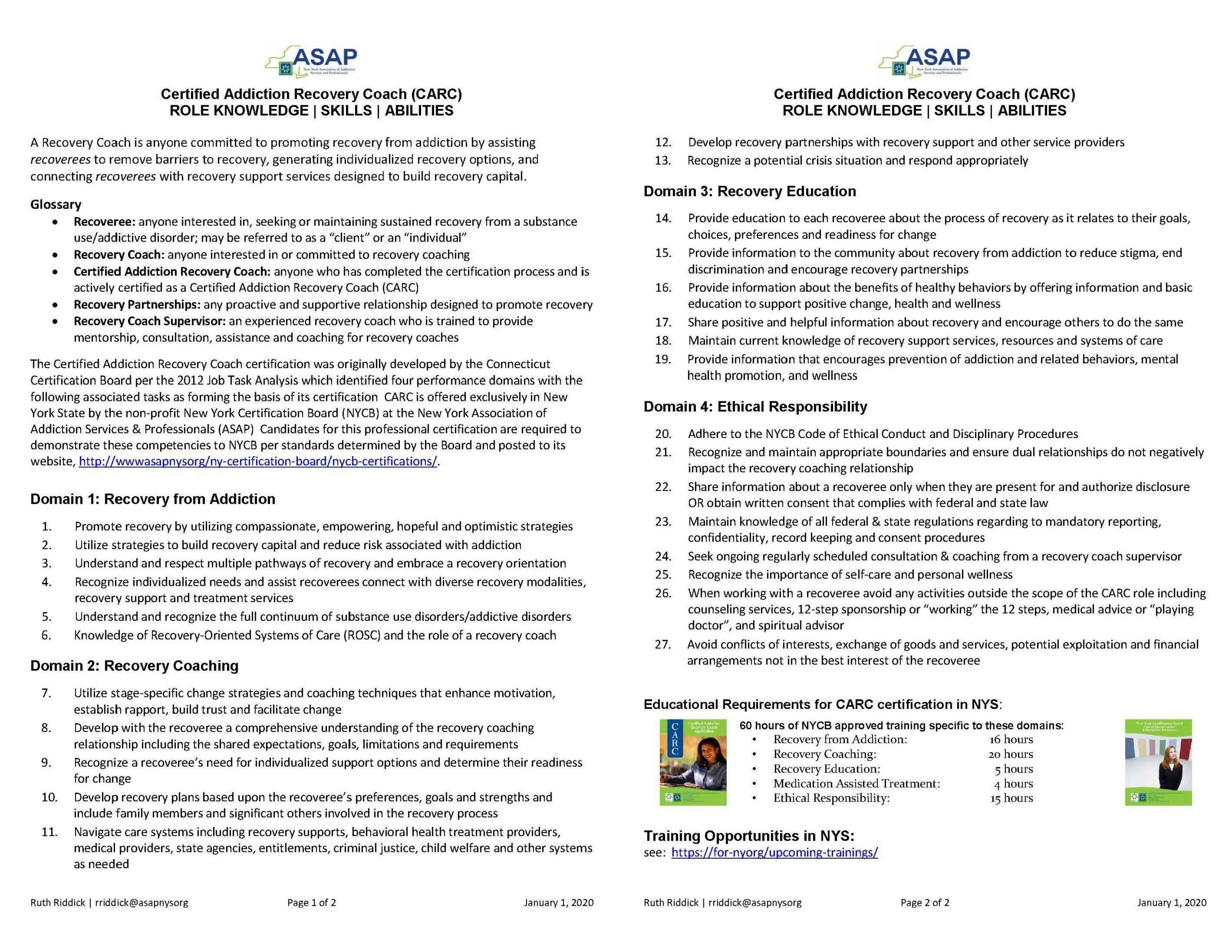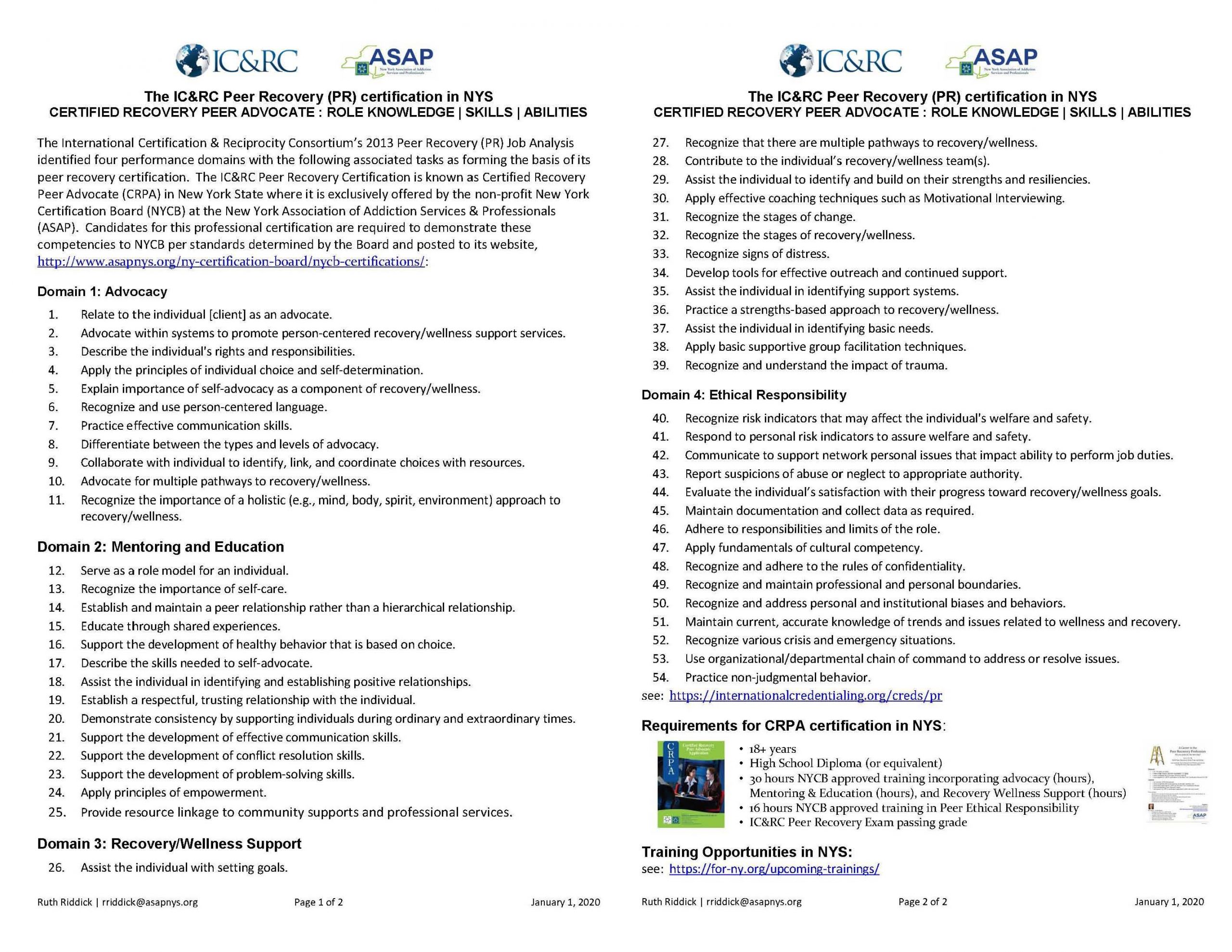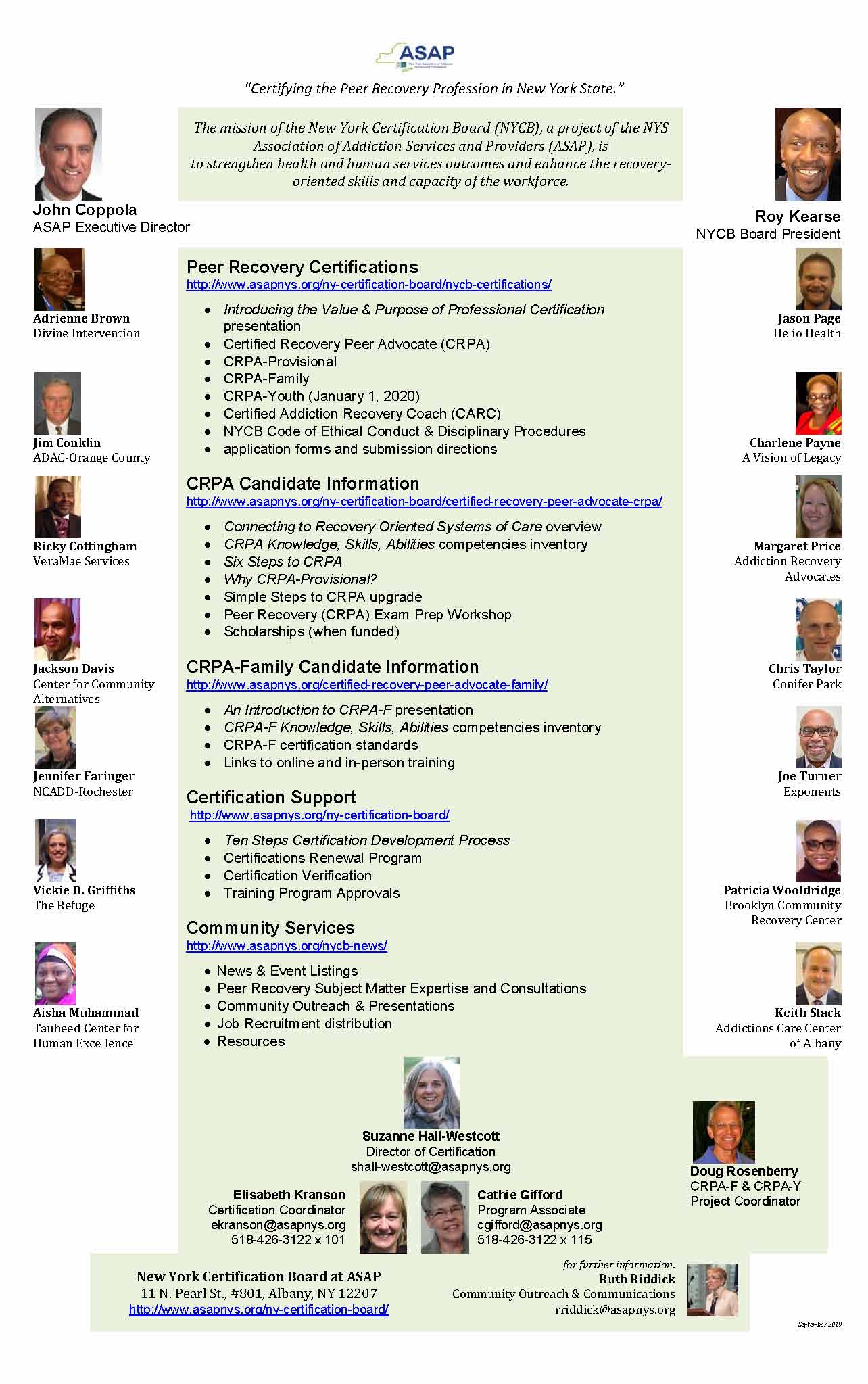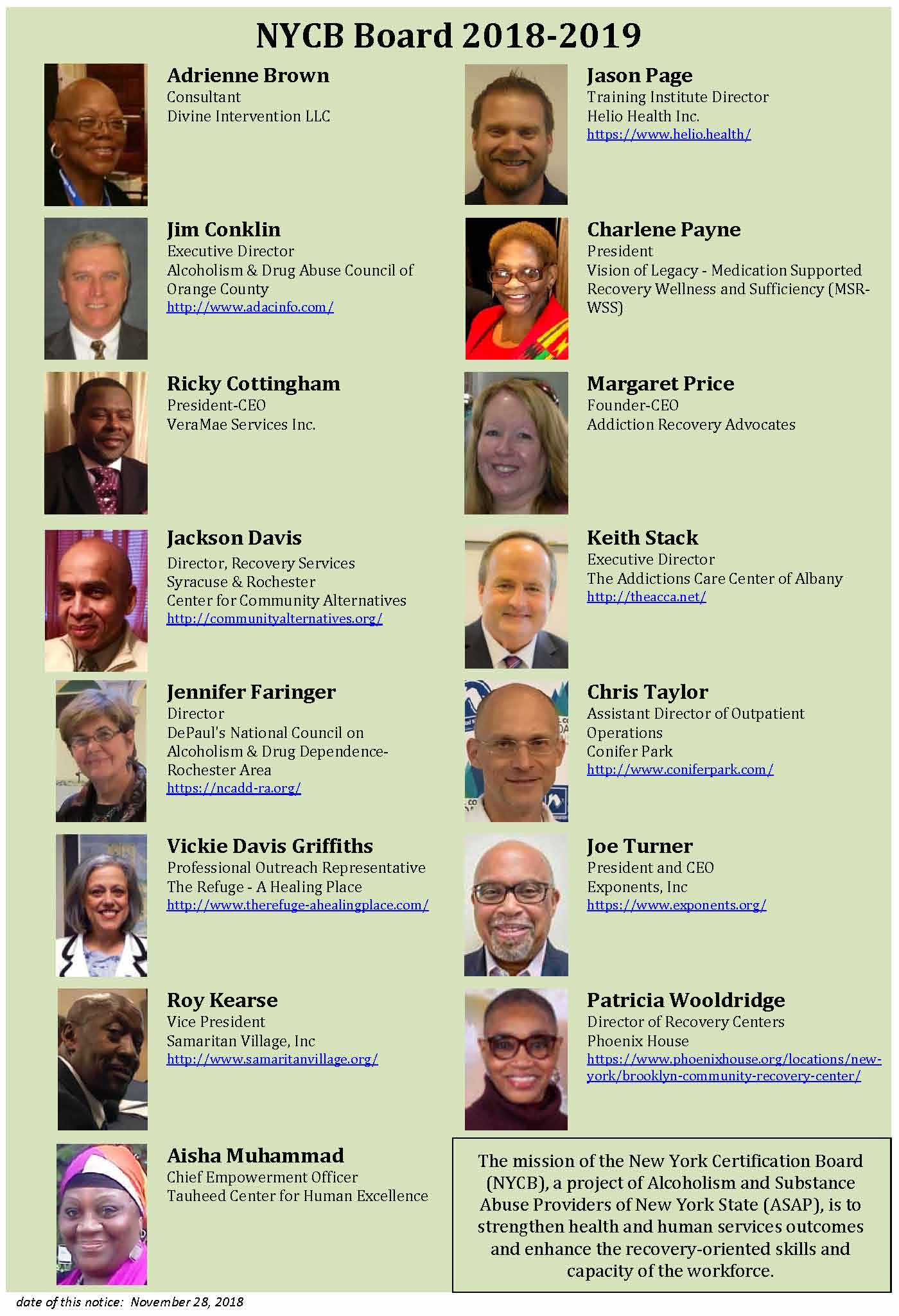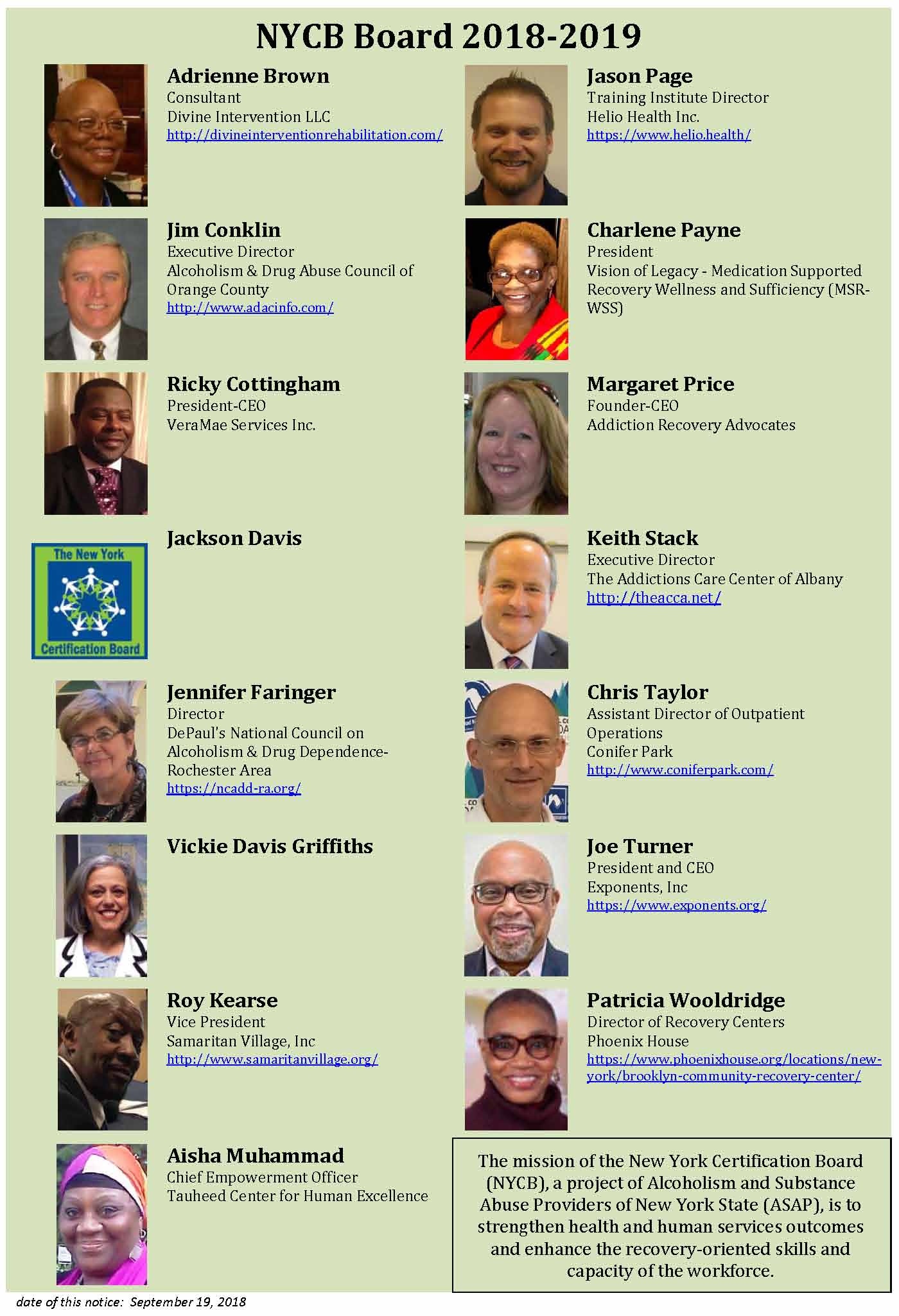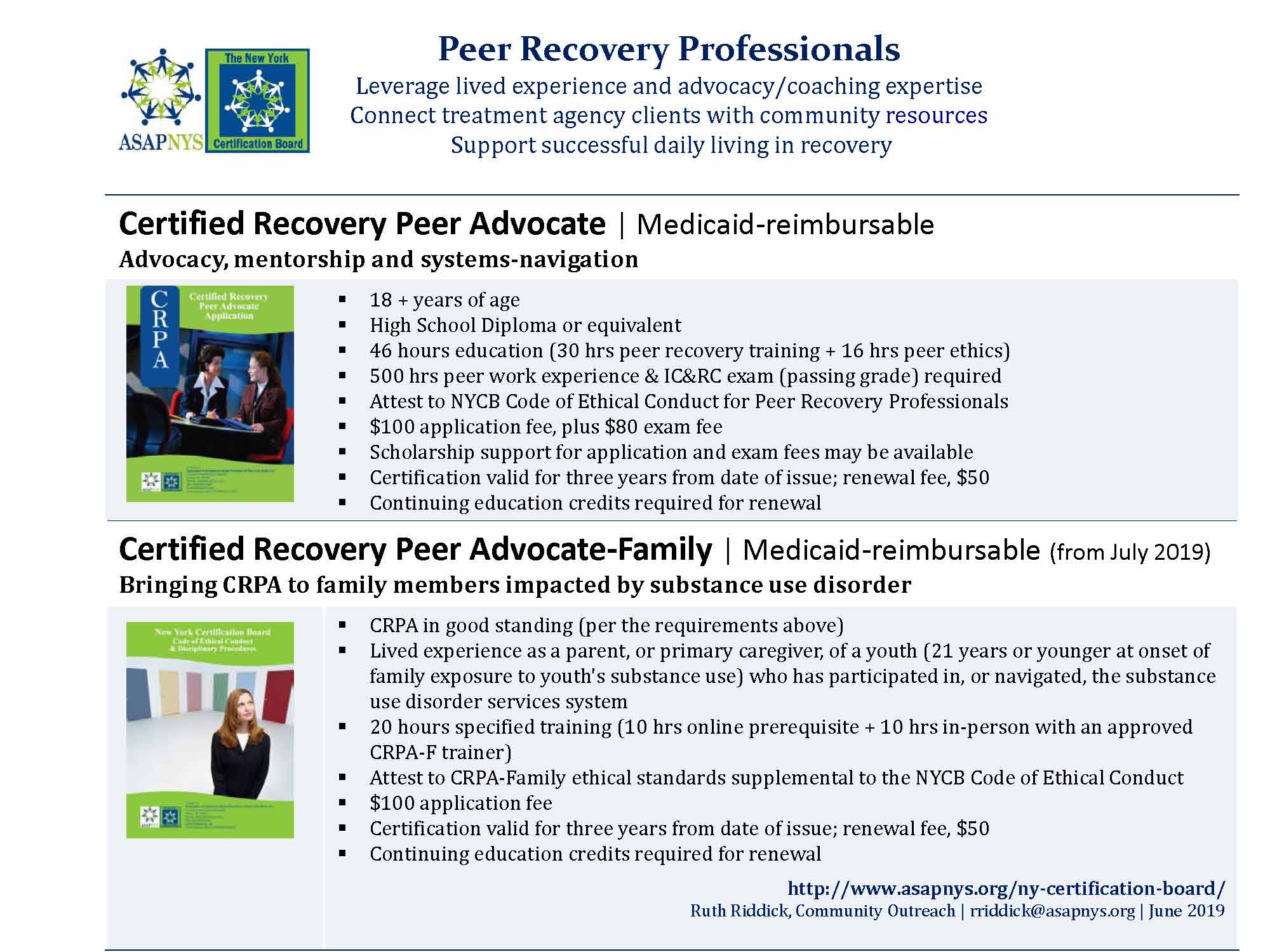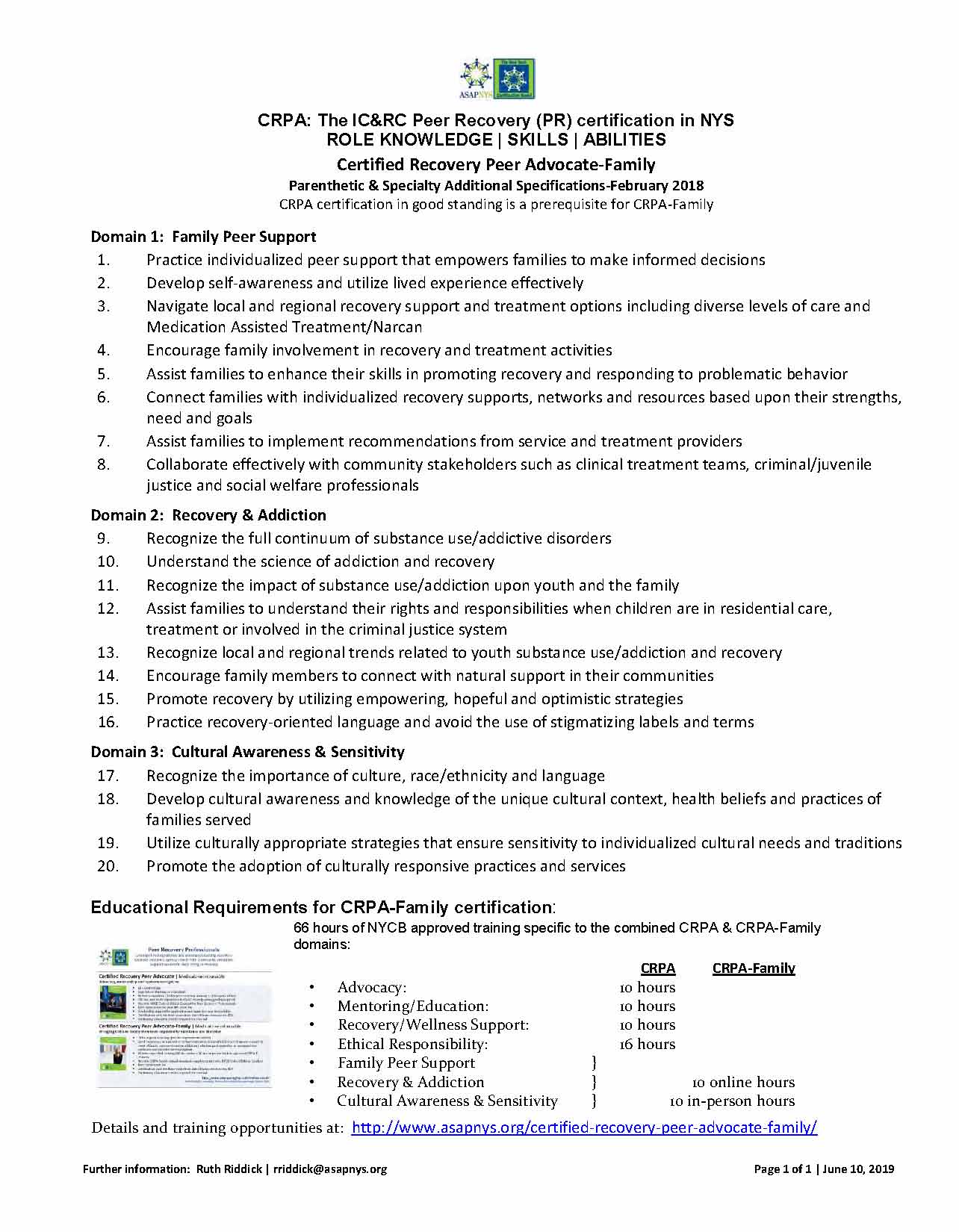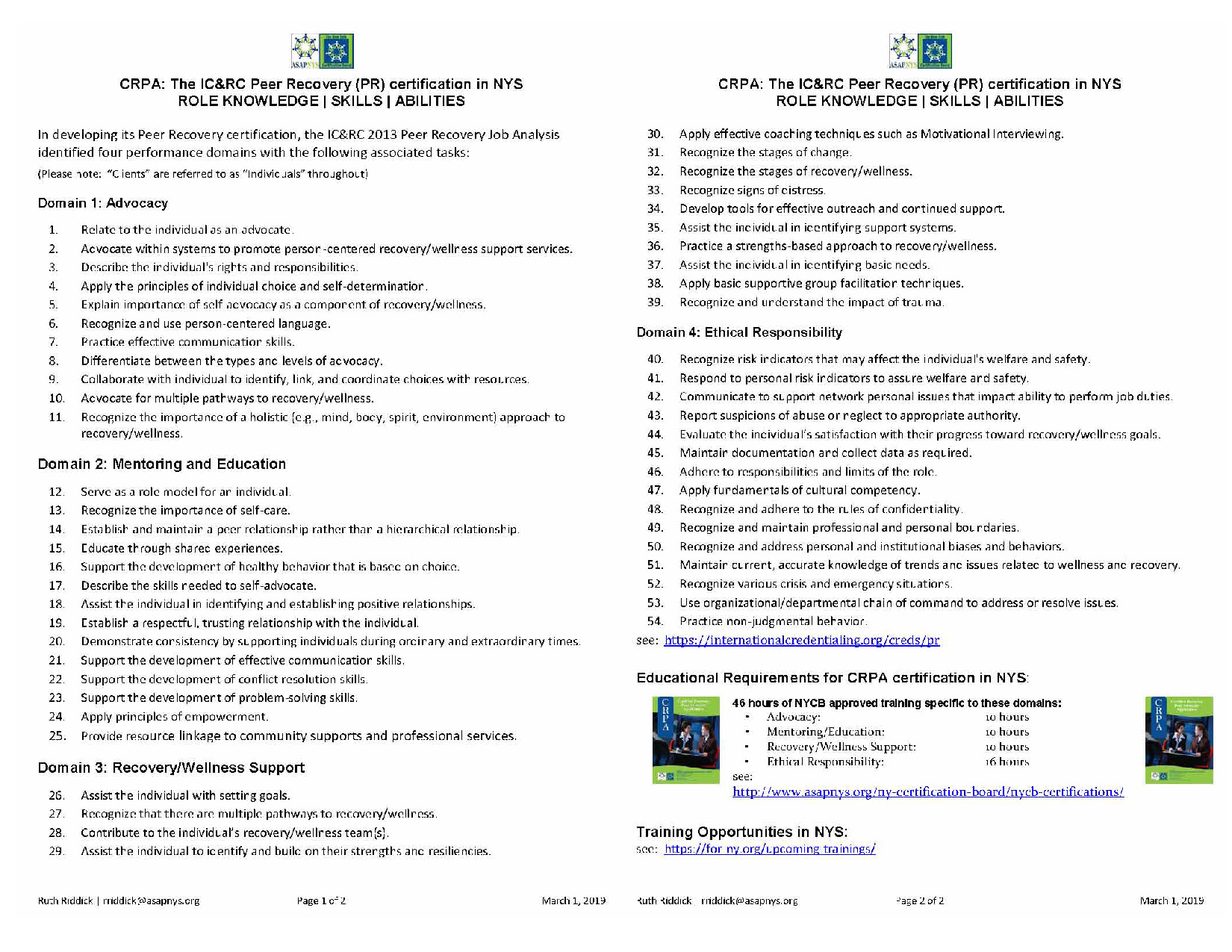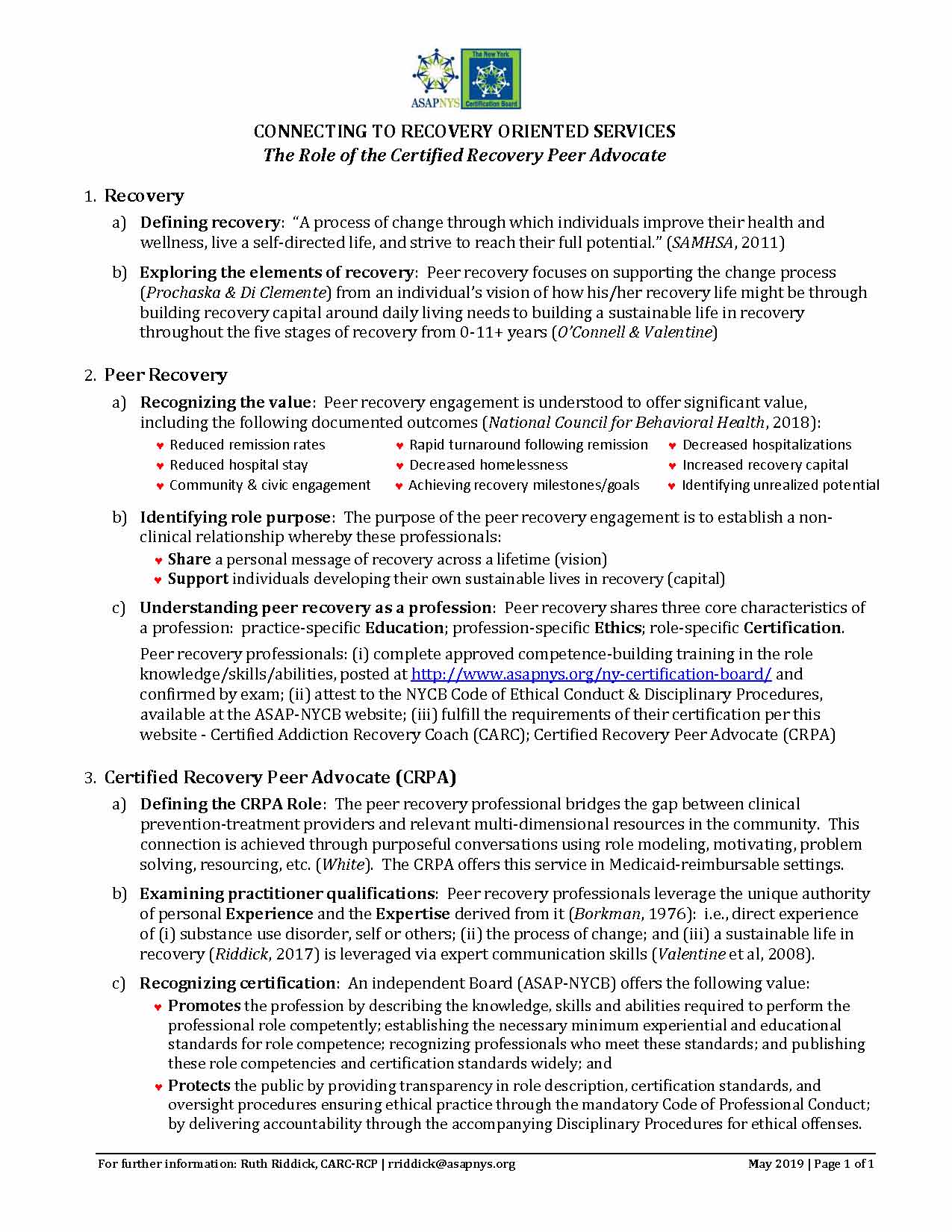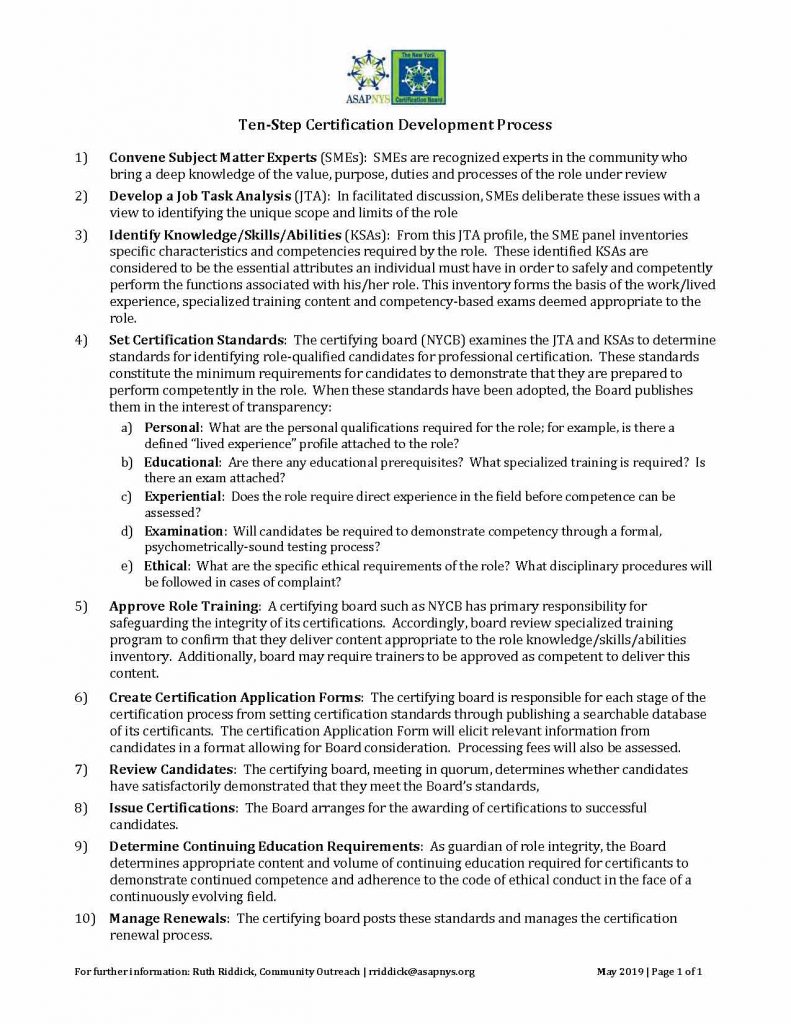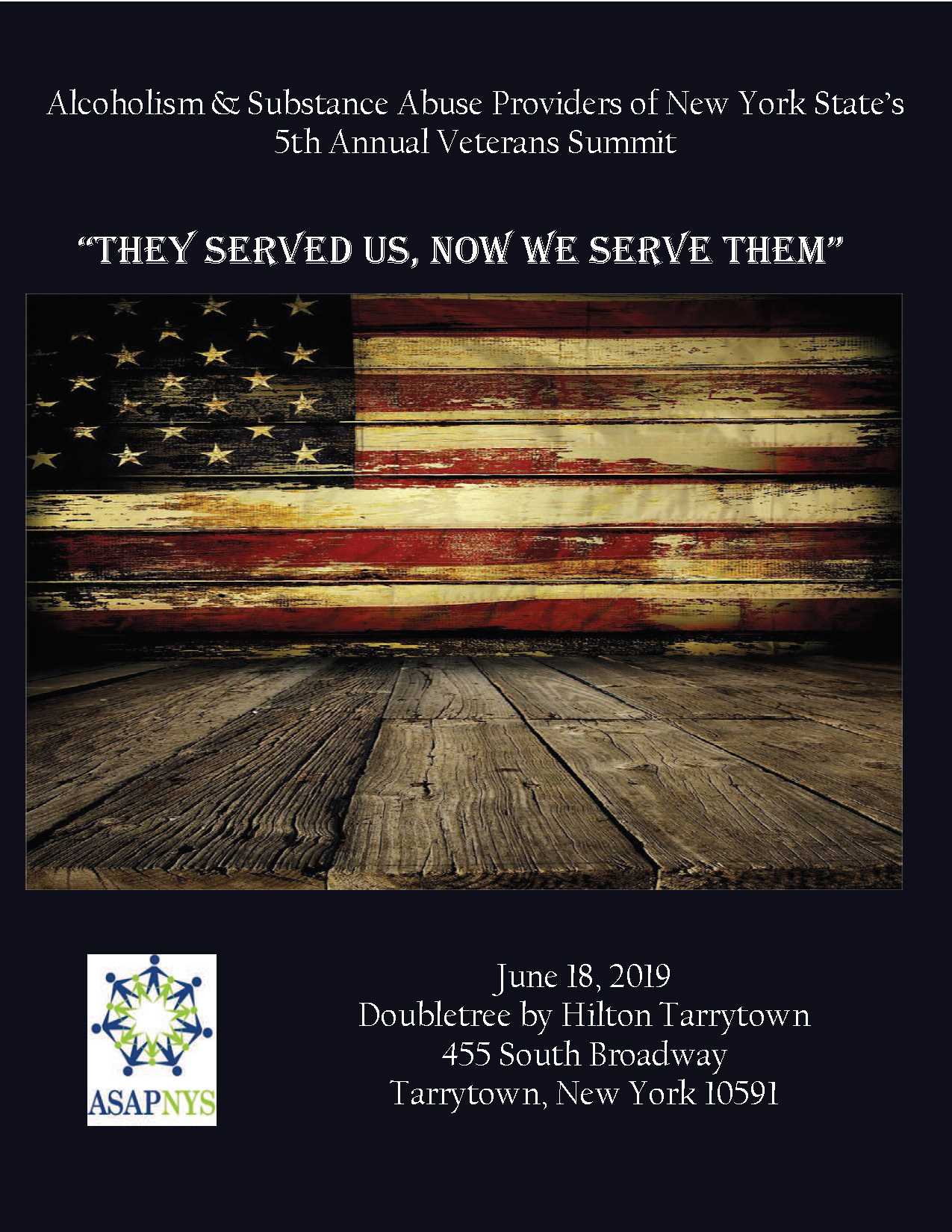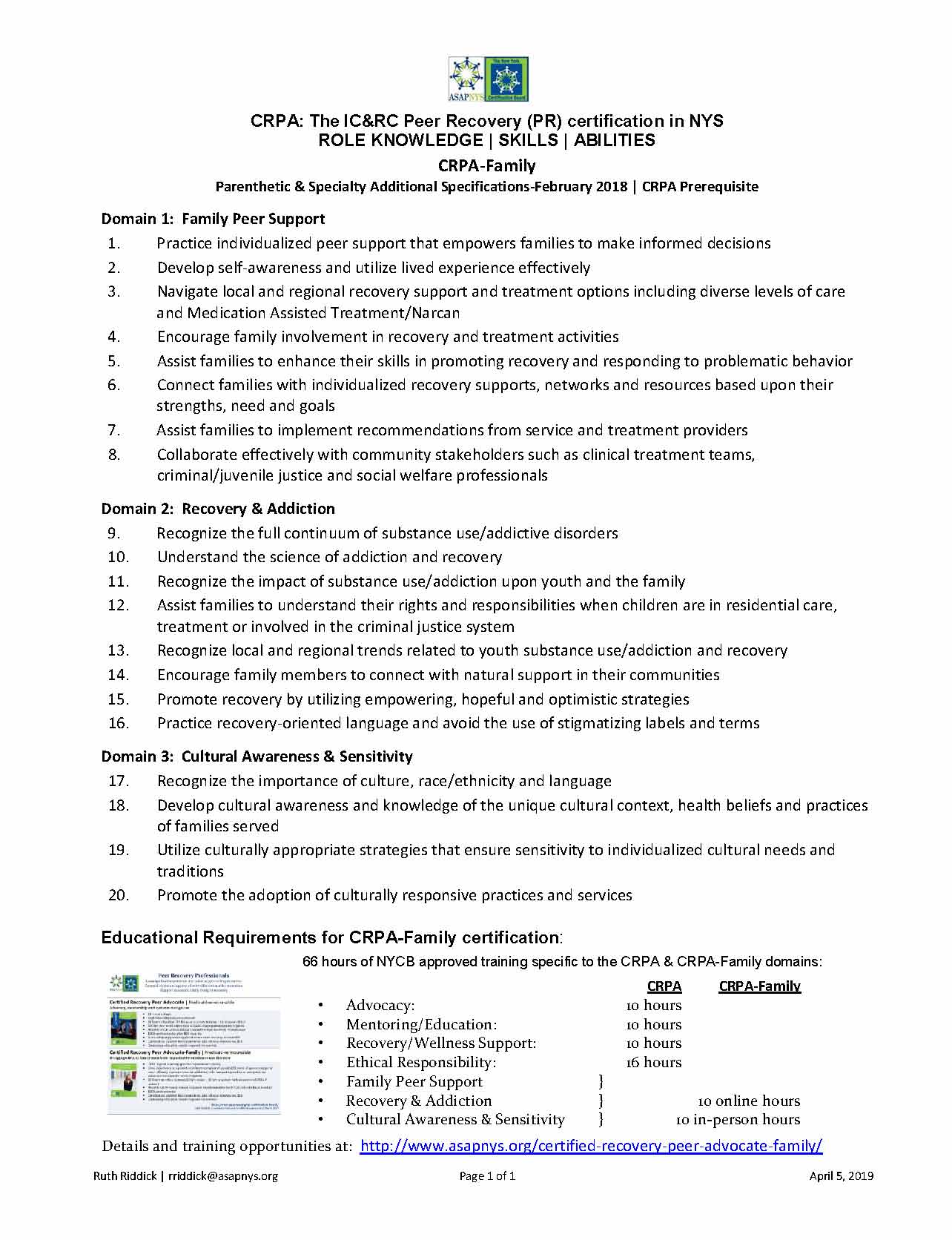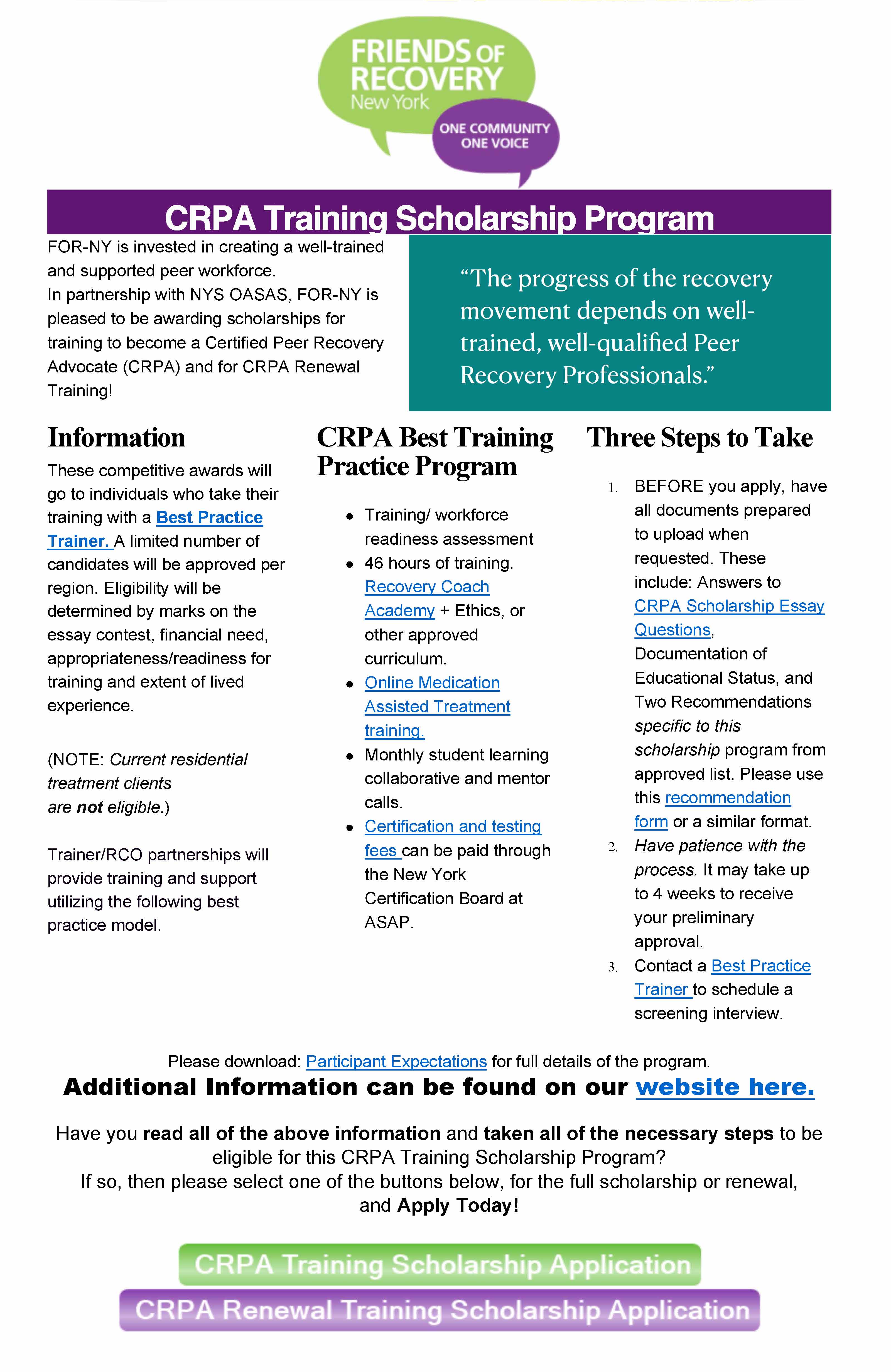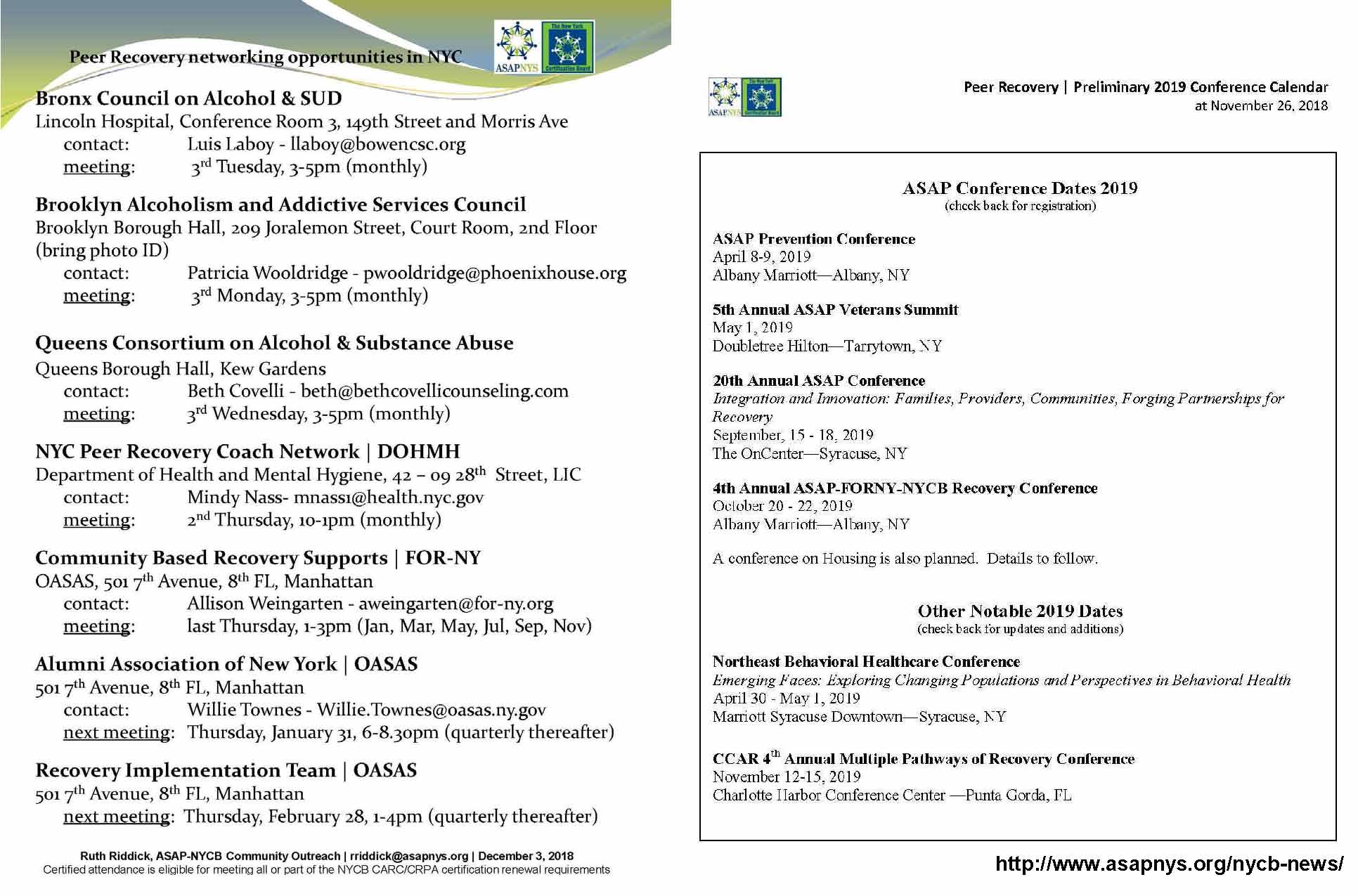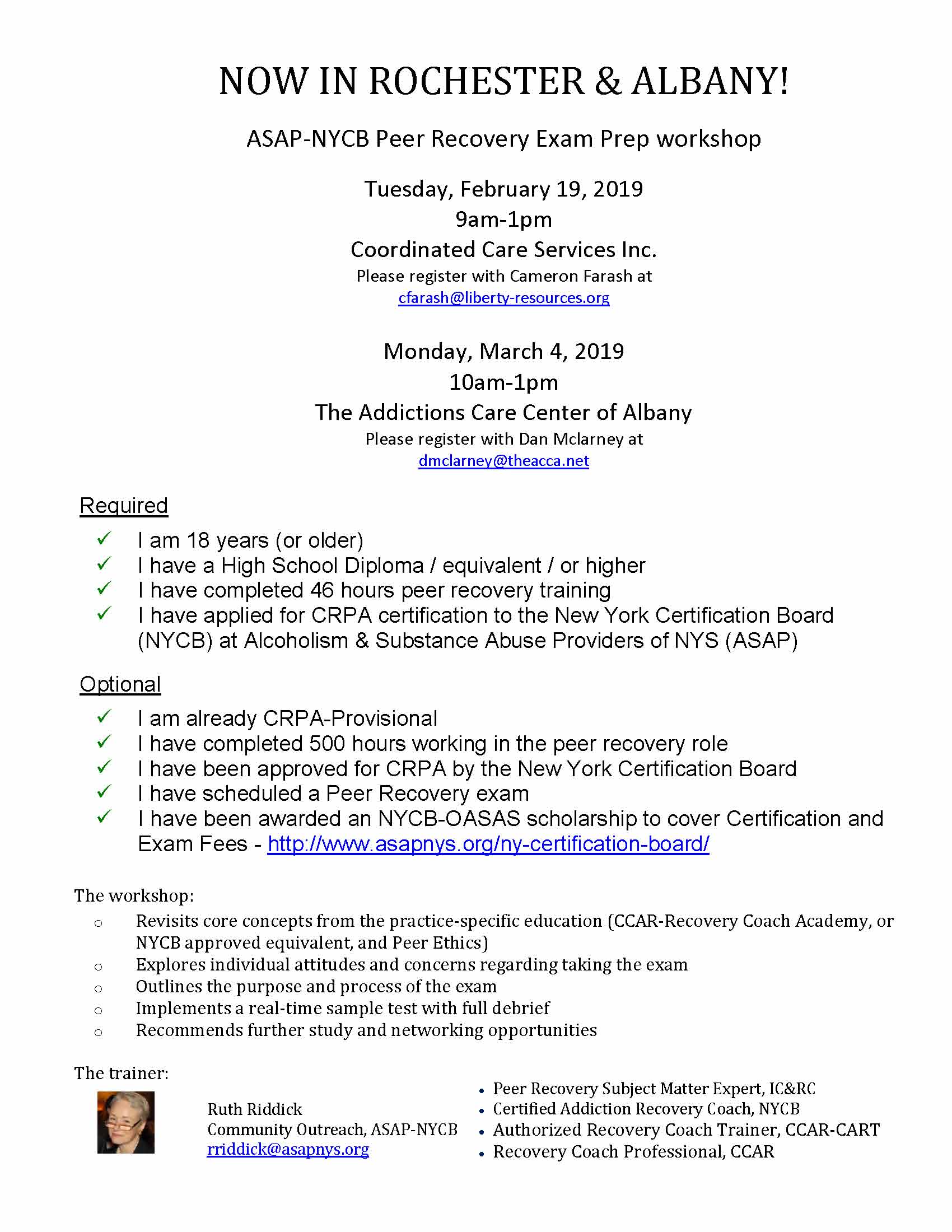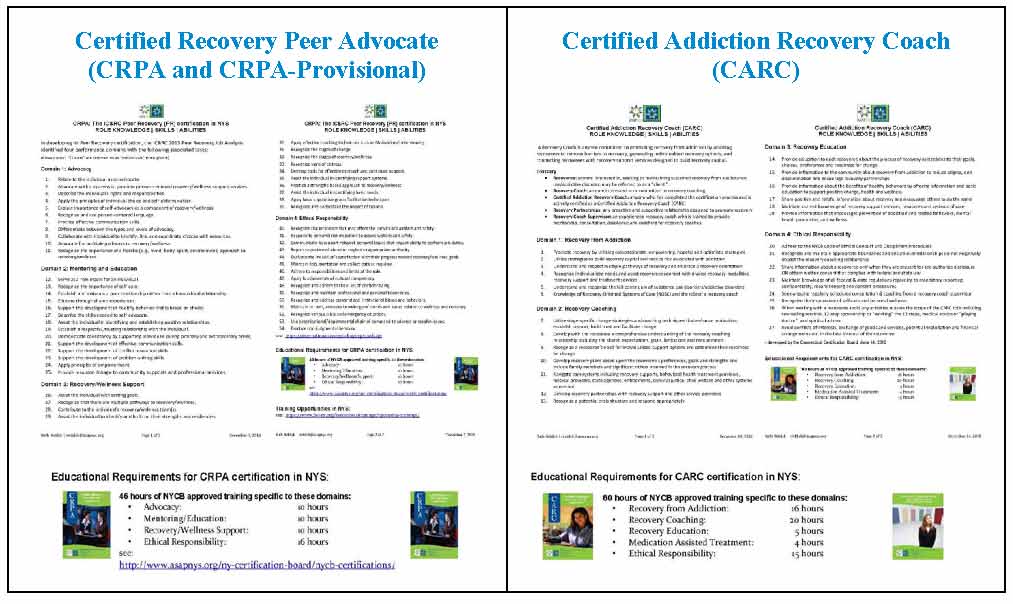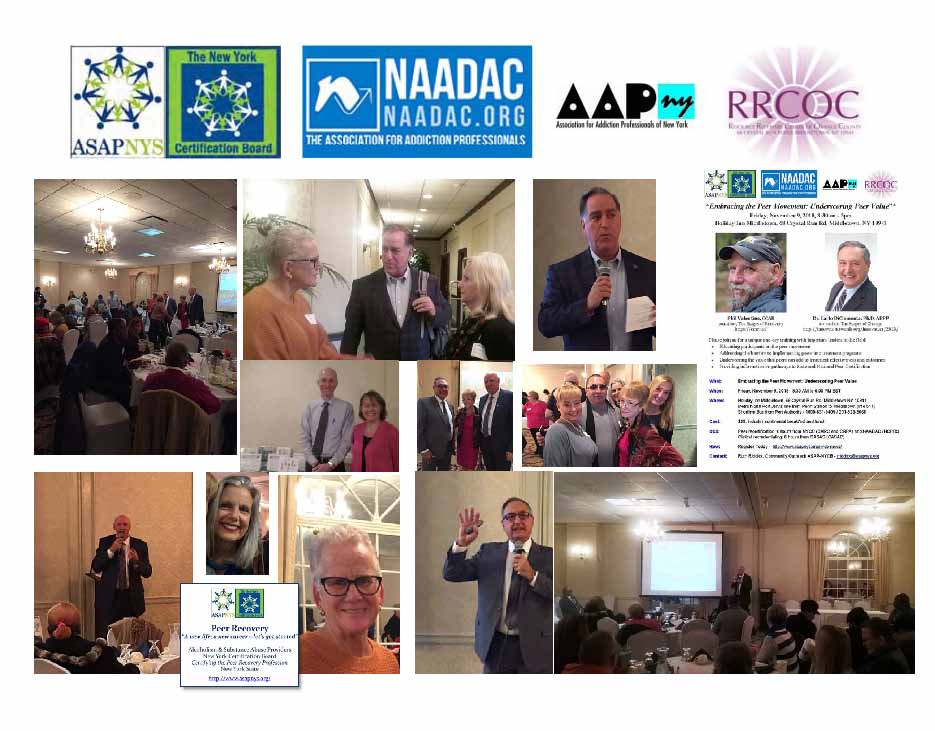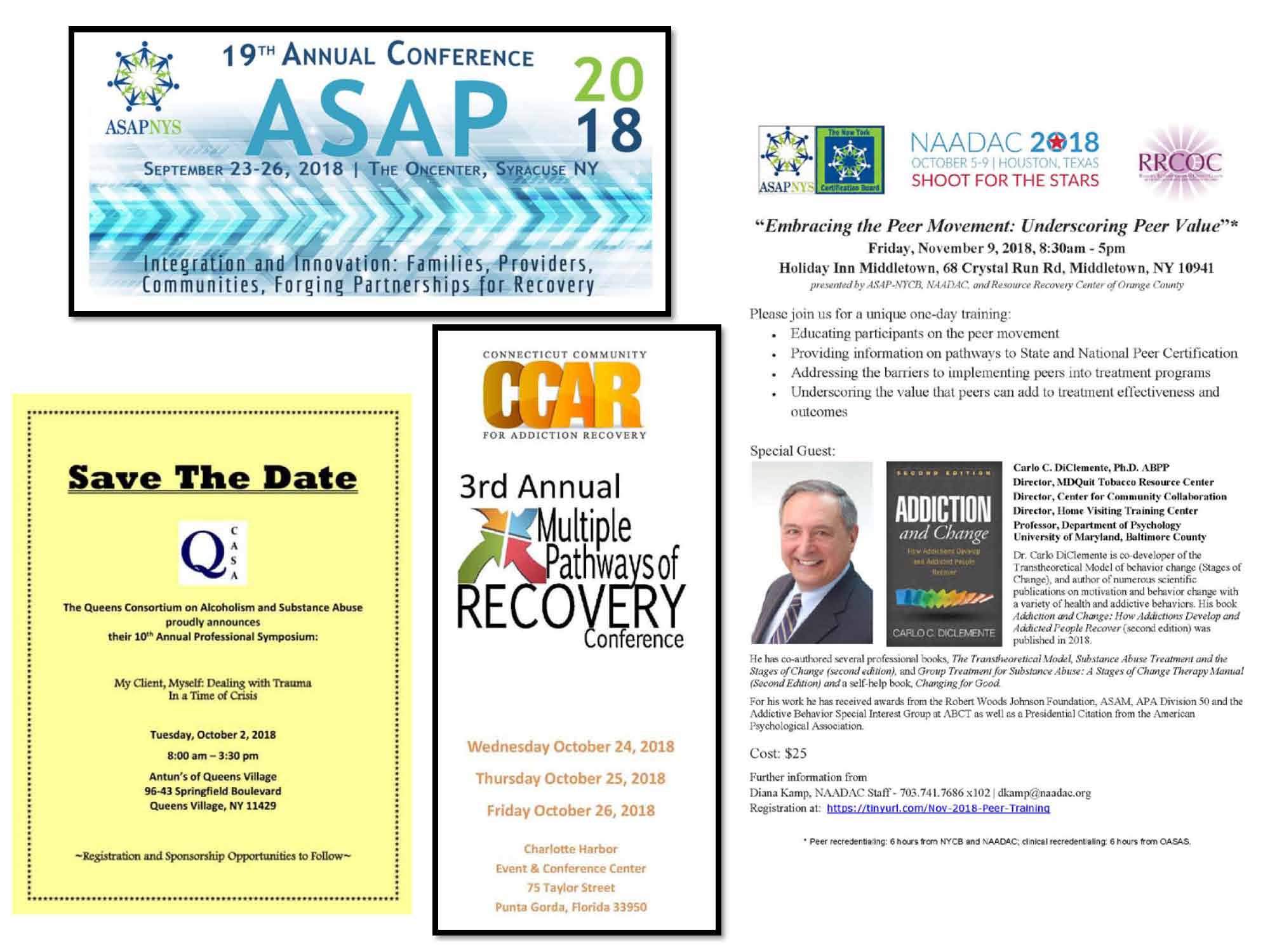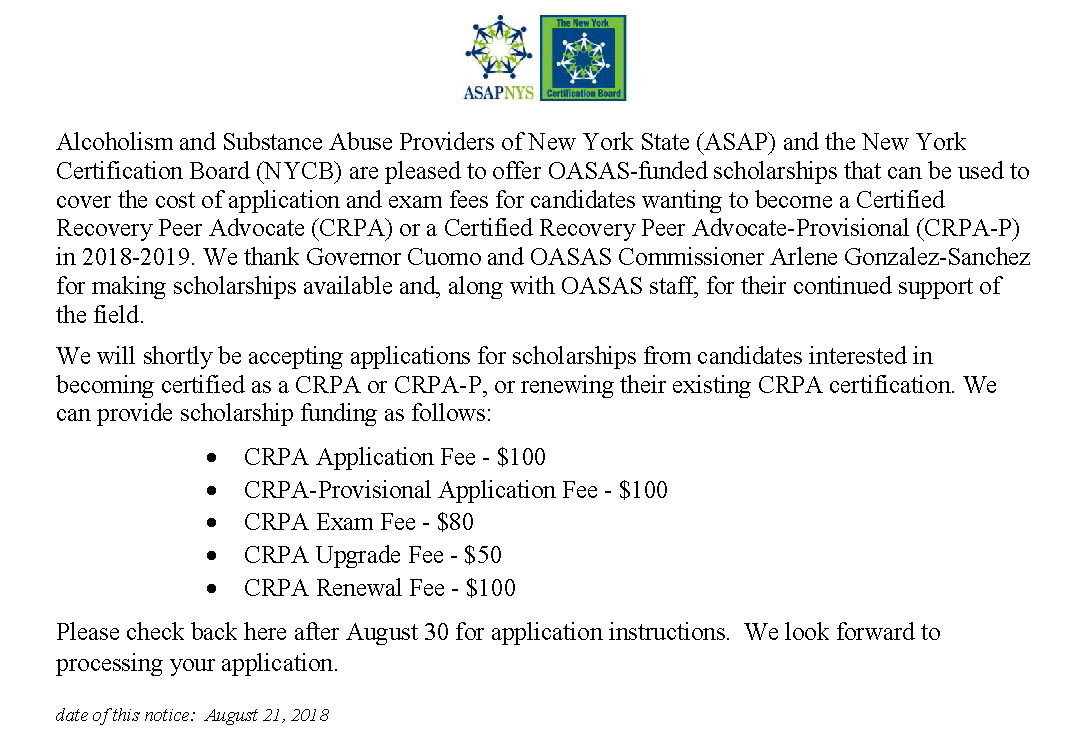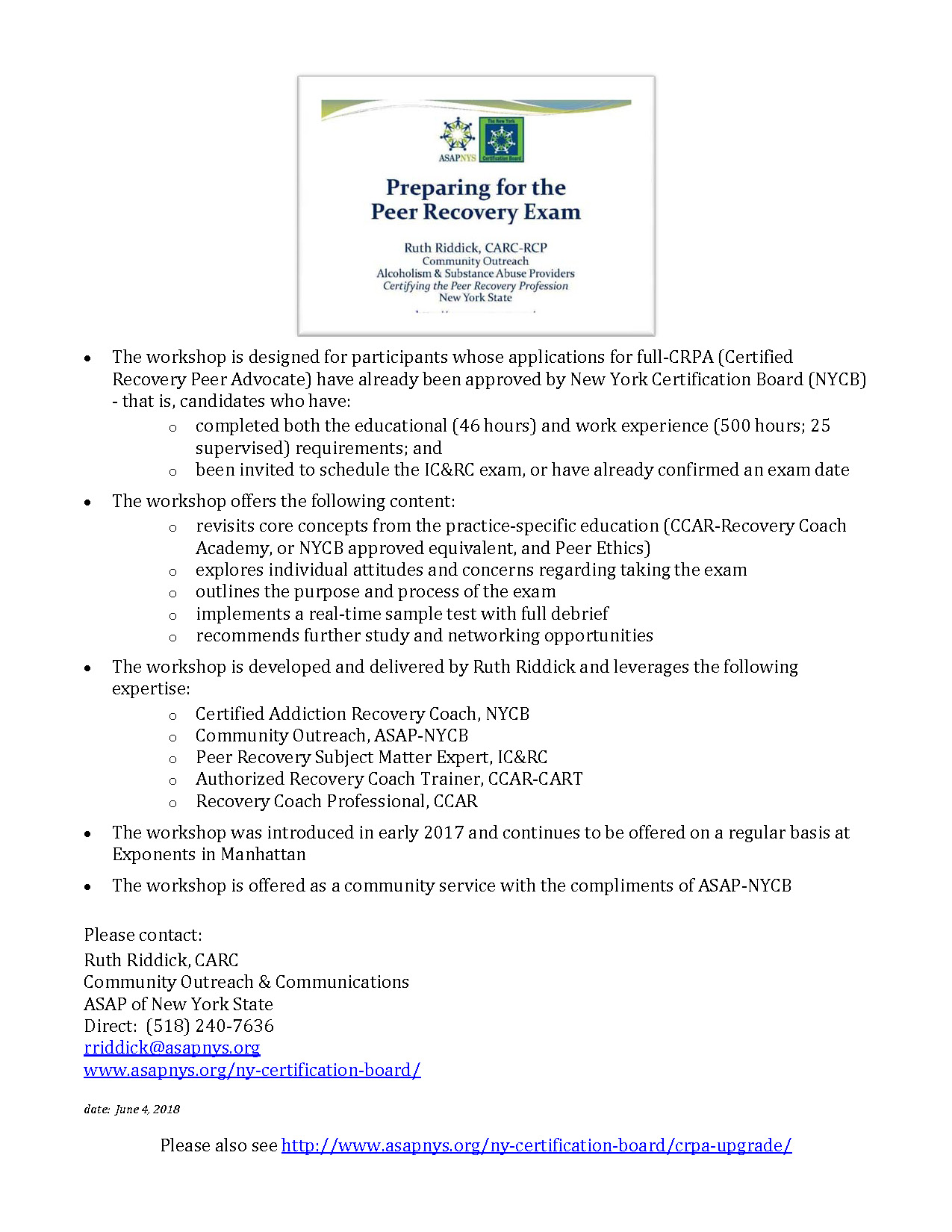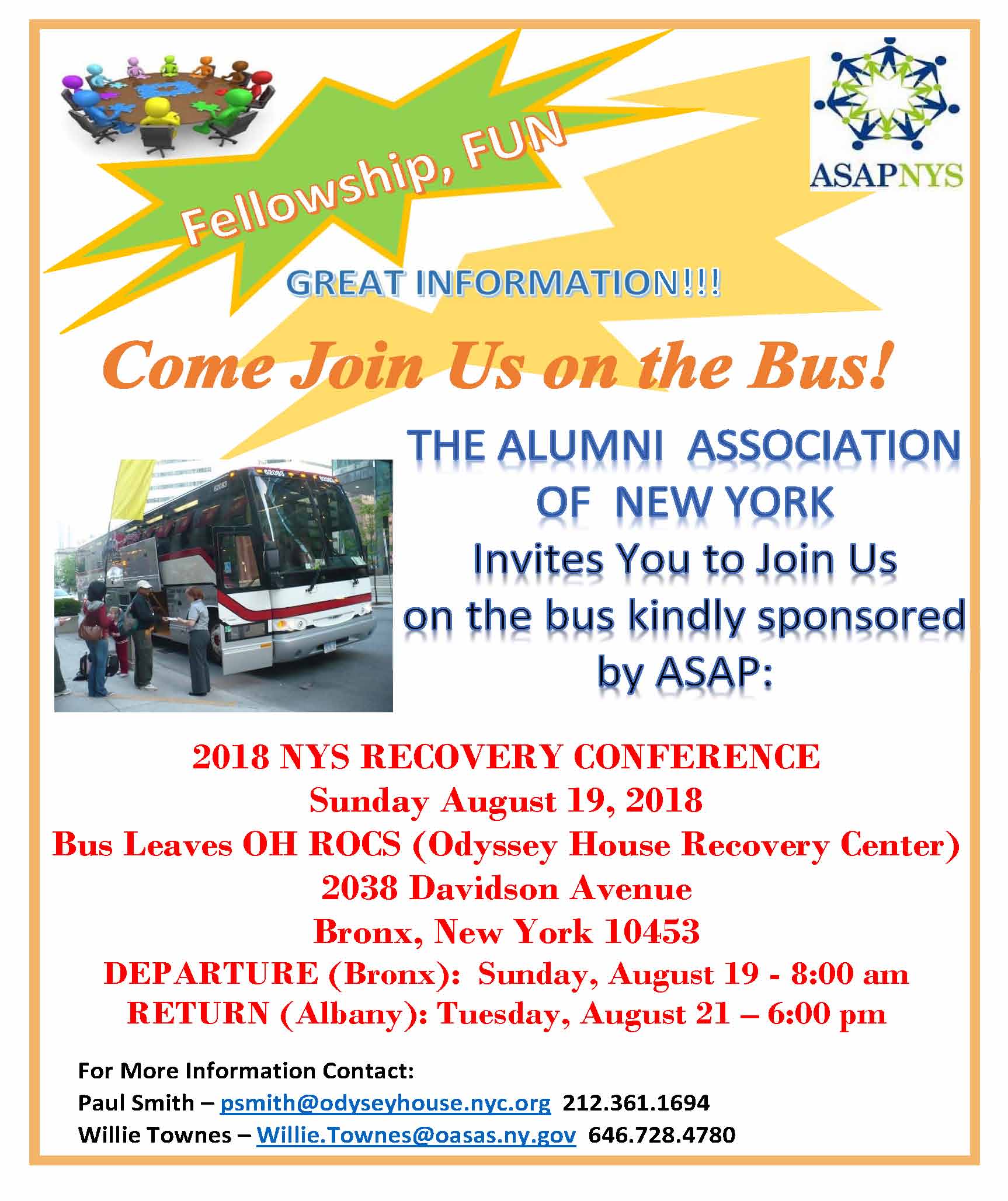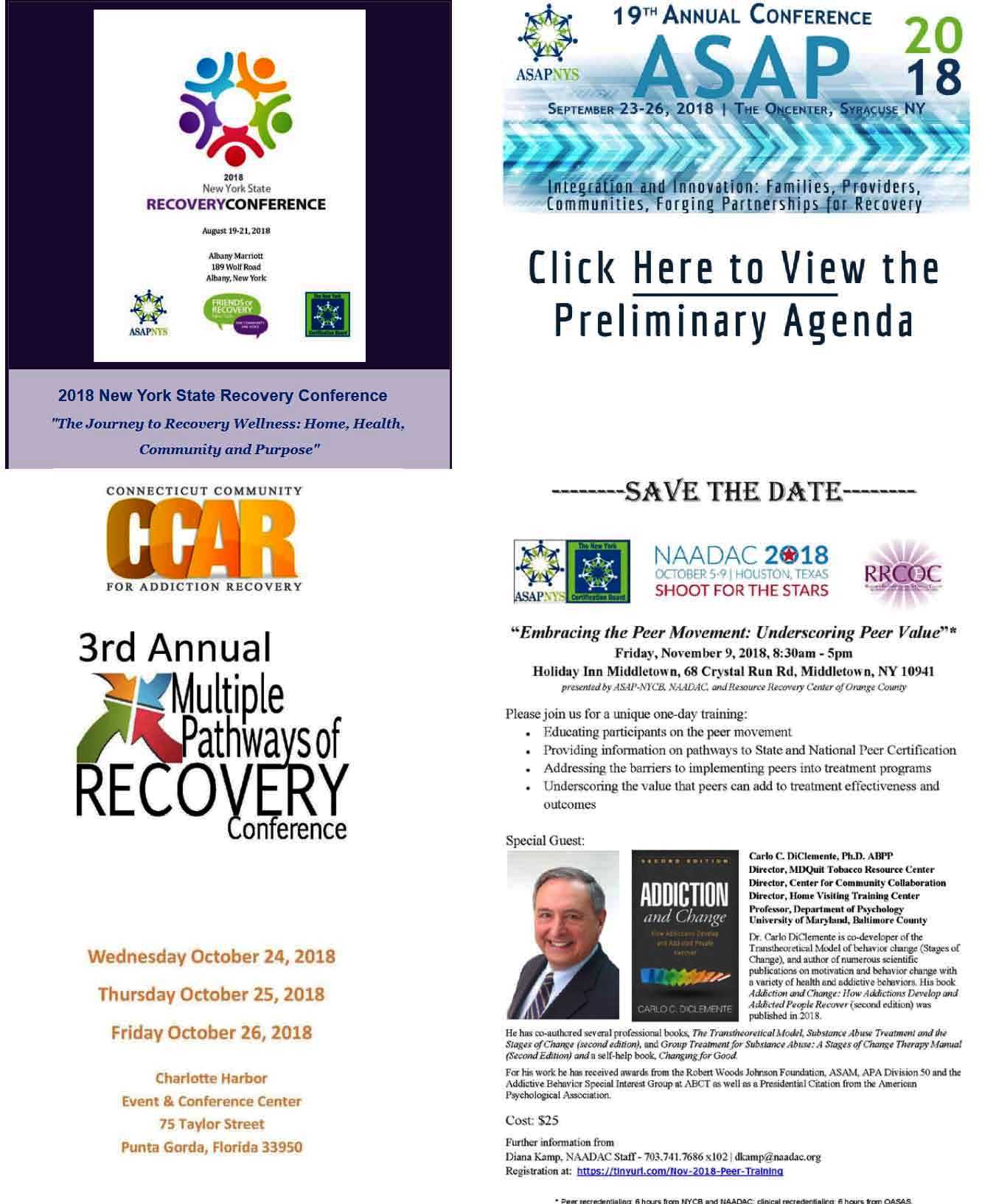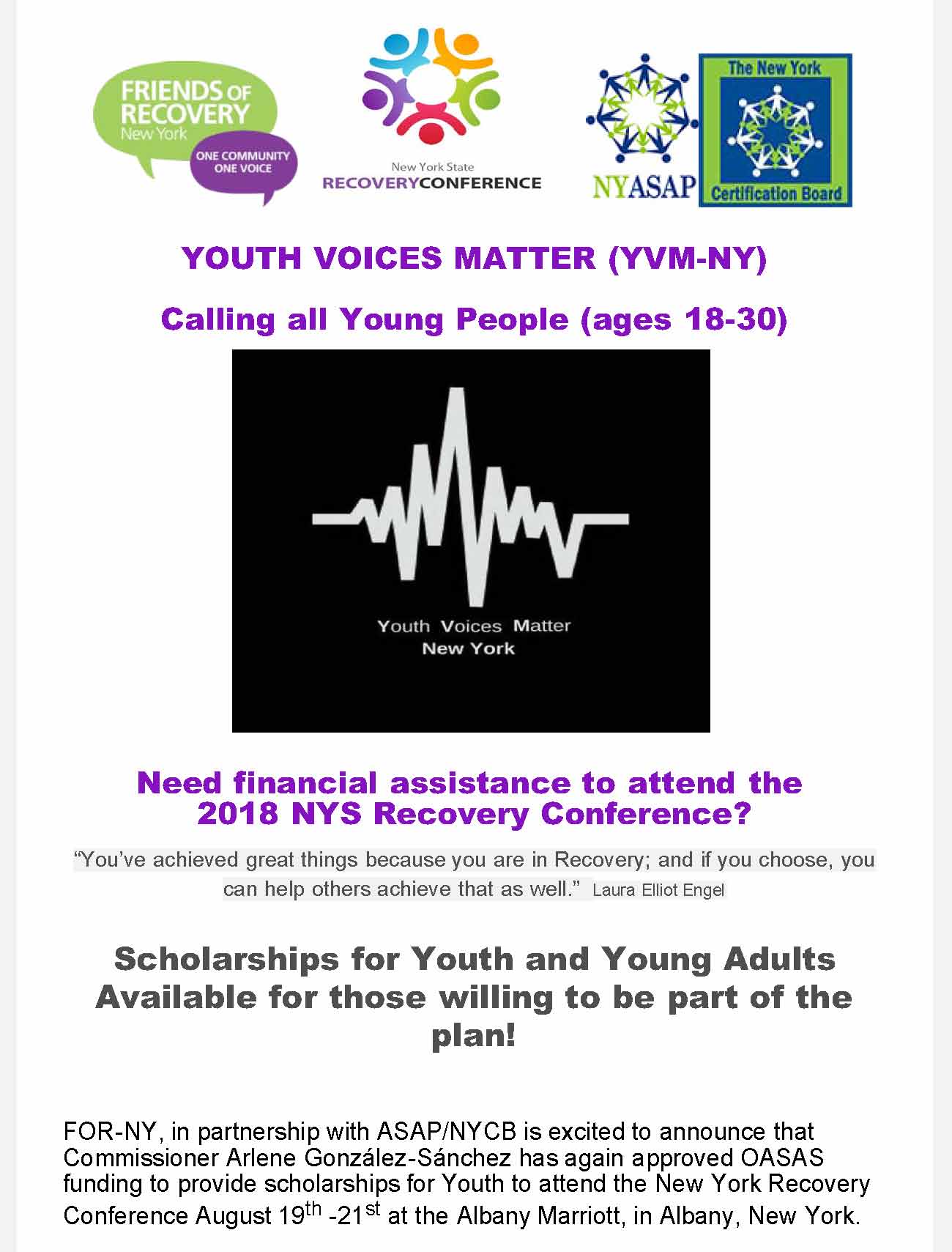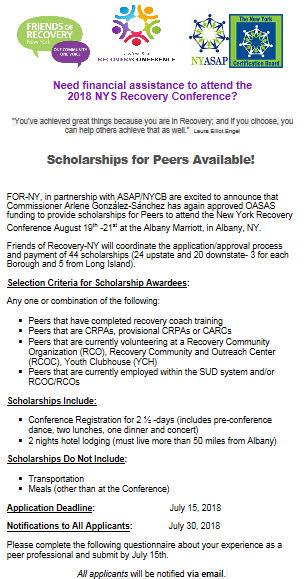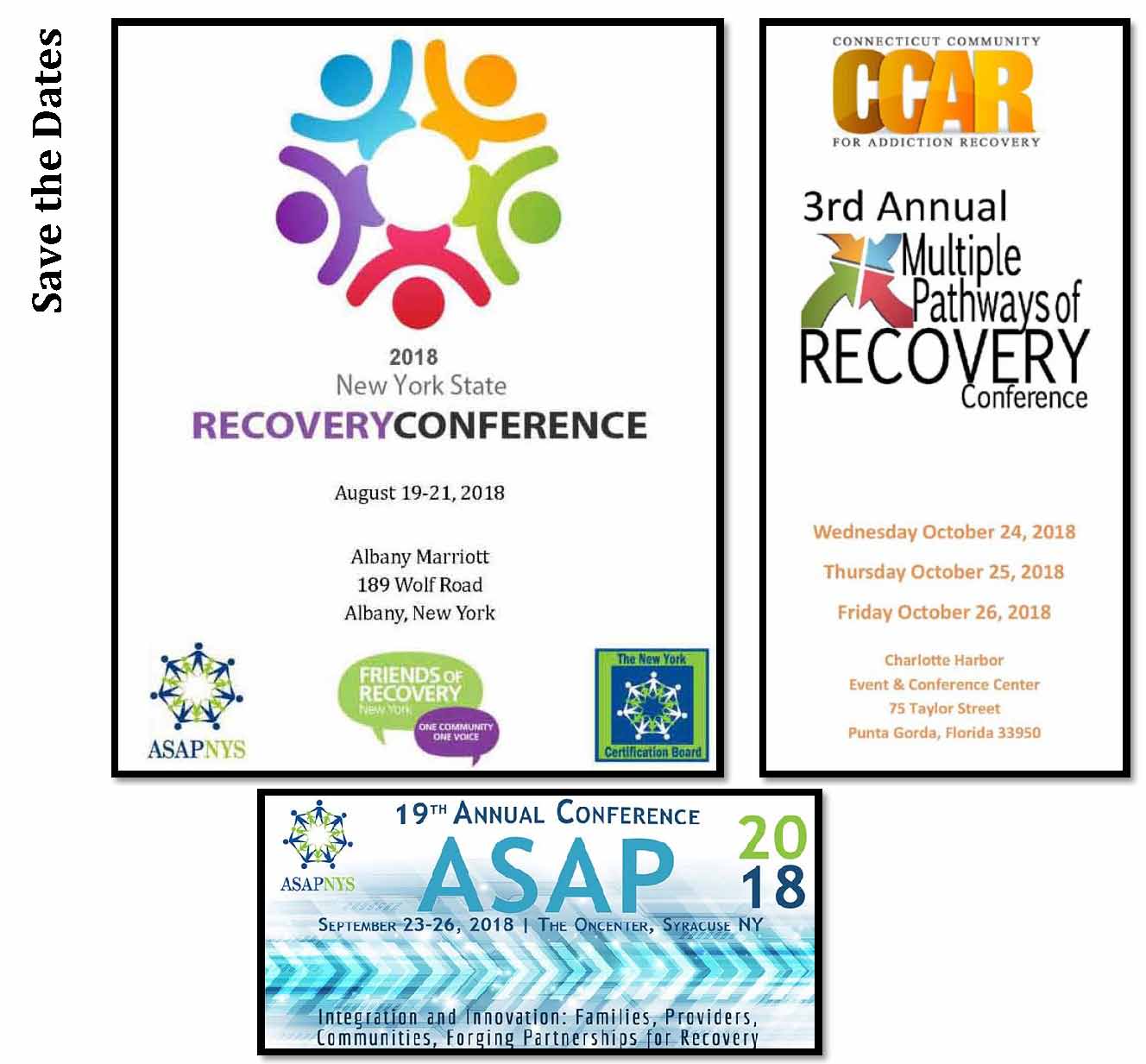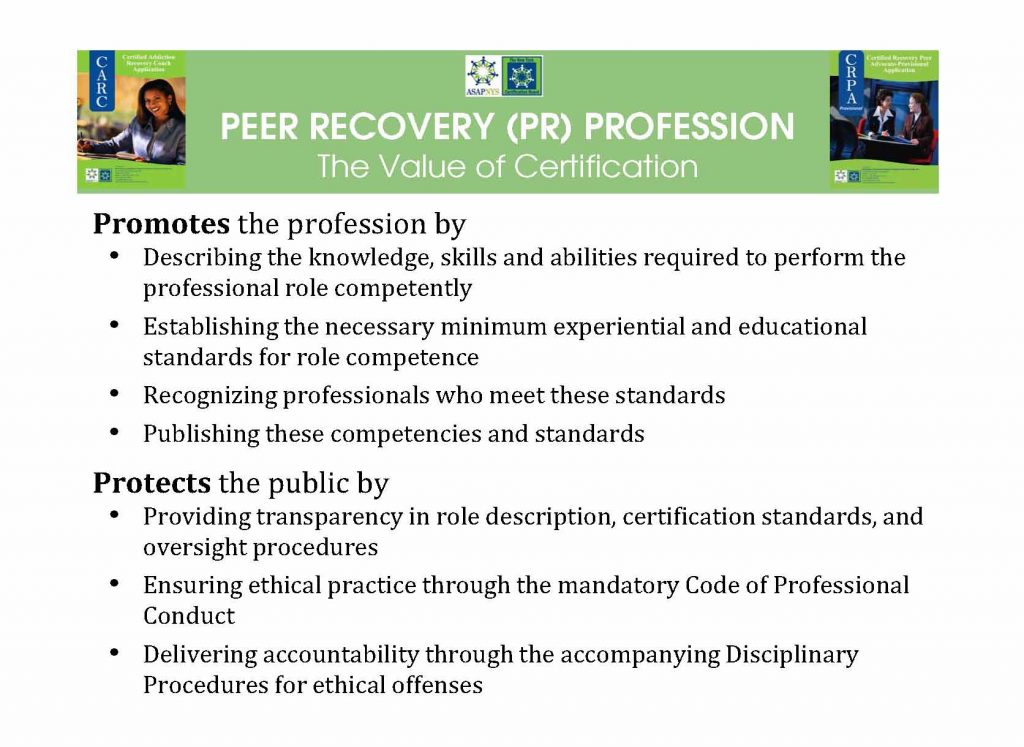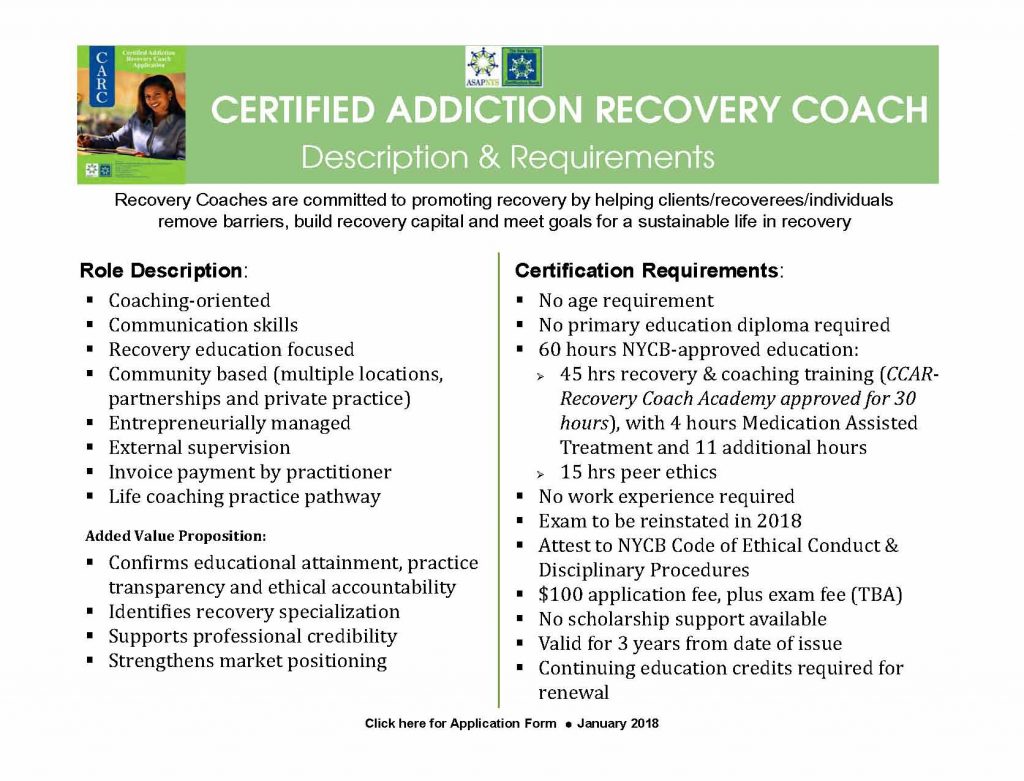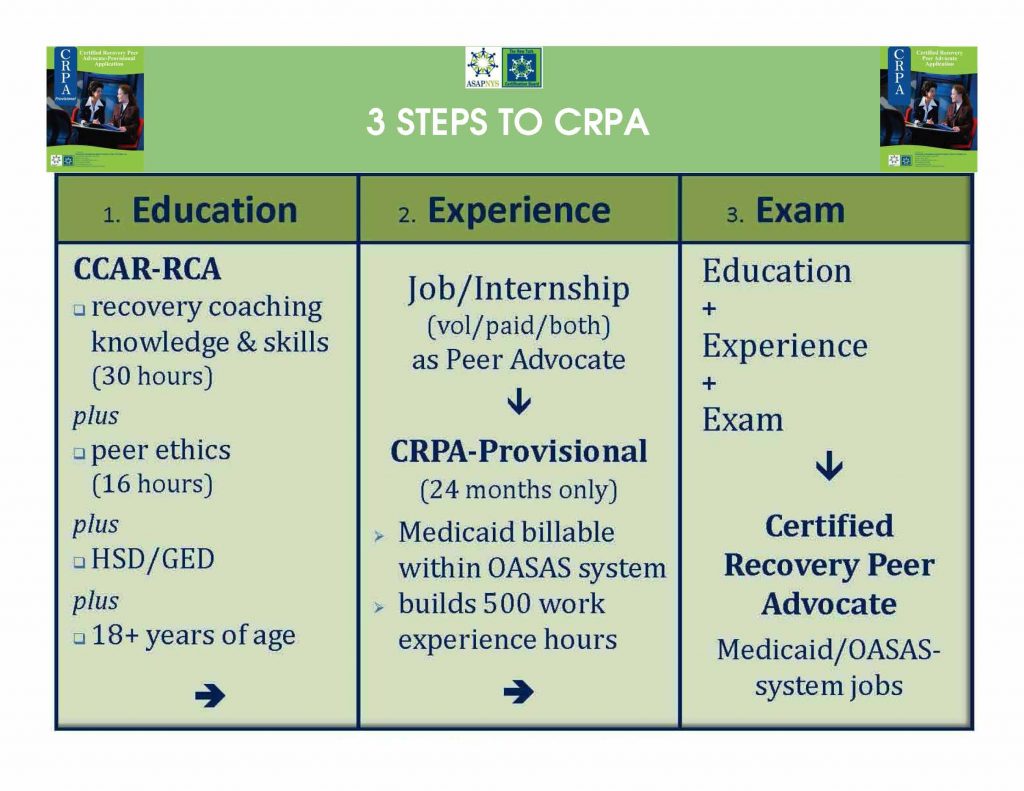What is VSR?
The Veteran Supported Recovery (VSR) certification, developed by the New York Certification Board (NYCB), is a specialized peer credential for professionals who provide targeted support to Veterans. This certification and its role-specific training were developed in response to field demand for peer professionals who understand the unique experiences of Veterans.
Training Overview
- Orientation Module (5 hours)
Required only for non-Veteran candidates, this training provides a foundational understanding of military culture and values.- 5-hour VSR Orientation training is available here.
- Core VSR Training (20 hours) is available here.
Covers four key domains:- Advocacy
- Recovery for Veterans
- Military Culture & Resources
- Ethical Responsibility
- Format: Online (with closed captioning)
- Developed by the Peer Workforce Initiative (PWI) in collaboration with military Veterans and peer recovery experts
- NYCB-approved for continuing education credits (CARC, CRPA, CRPA-Parenthetics when not applied toward certification)
Who should take this training?
- Individuals preparing to become certified as VSR professionals
- Peer recovery professionals seeking continuing education credits for CARC or CRPA renewal
- Peer workers interested in learning how to support Veterans living with Substance Use Disorder (SUD)
- Non-Veteran peer professionals looking to build military cultural competence
Where do VSR Professionals work?
VSR-certified peers serve Veterans in a wide range of settings, including:
- Community-based substance use and recovery programs
- Mental health agencies
- Veteran’s hospitals and clinics
- Housing and employment support services
- Recovery community centers
Simply put: VSR professionals work wherever Veterans are served.
VSR Certification Standards
Prerequisites
Candidates must hold a valid peer certification in good standing, including one of the following:
- Certified Addiction Recovery Coach (CARC)
- Certified Recovery Peer Advocate (CRPA)
- NY Certified Peer Specialist (NYCPS-Mental Health)
- Other nationally recognized peer recovery credentials
Eligibility Criteria
Veterans:
- Must have served on active duty in the U.S. Armed Forces
- Must have received a discharge other than dishonorable
Non-Veterans:
- Must complete the 5-hour NYCB-approved VSR Orientation training
All Candidates Must:
- Complete the 20-hour NYCB-approved VSR training
- Agree to and sign the NYCB Code of Ethical Conduct, including the VSR-specific addendum
Maintaining Certification
To maintain VSR certification, peers must complete:
- 3 hours of NYCB-approved continuing education every 3 years, in any of the four core domains.
- View approved trainings: NYCB Certification Renewal Program
How to apply
Visit the NYCB Certification Applications page for details and the full application: click here
VSR Training - Online only
Curriculum Development Convener, Jason Page, describes the process of building a competence-based training from the VSR Role Delineation Study here.
The VSR training program consists of content specifically designed to meet the role knowledge, skills and abilities (KSAs) required to perform competently as a VSR professional. These KSAs were identified in the VSR Role Delineation Study-Job Task Analysis, which stipulates 4 domains and 21 itemized KSAs - click here.
